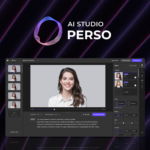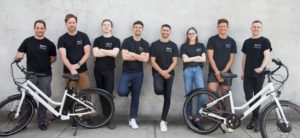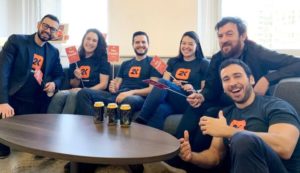Philadelphia-based biotech firm Vivodyne has secured $38 million in seed funding led by Khosla Ventures to pioneer drug discovery with its cutting-edge AI platform, utilizing lab-grown human organs to accelerate advancements in pharmaceutical research.
The seed round also witnessed participation from Kairos Ventures, CS Ventures, MBX Capital, and Bison Ventures. This injection of funds is earmarked to propel the advancement of Vivodyne’s groundbreaking discovery pipeline and clinically predictive AI stack.
Vivodyne, founded by Andrei Georgescu and Dan Huh, is making waves in drug development by leveraging robots to experiment on lab-grown human organ tissues at an unprecedented scale. The company’s unique platform, capable of cultivating, dosing, and analyzing over 10,000 individual human tissues simultaneously, harnesses robotic automation to create vast datasets empowering predictive AI for drug discovery.
A Paradigm Shift in Drug Testing
Bioengineering over 20 types of human organ tissues, Vivodyne’s 3D models replicate native human physiology with remarkable precision. Each model, containing 200,000 to 500,000 cells, includes fully perfusable blood vessel networks, enabling the study of various drug modalities, from small molecules to biologics like antibodies and mRNA-bearing lipid nanoparticles.
Vivodyne’s CEO, Andrei Georgescu, highlights the platform’s unique position to enhance our understanding of age-related changes in human phenotypes and functions. Vivodyne aims to map and validate druggable therapeutic targets for increased longevity and healthy tissue function by cultivating tissues from diverse demographics, including various age groups.
Collaborations with Pharma Giants
Already boasting collaborations with most of the top 10 large pharmaceutical companies, Vivodyne’s AI-driven platform is commercially available for new therapeutic programs and disease areas. Additionally, the platform is open for Phase I/II partnerships, offering clinically supporting data and rescuing underperforming clinical assets.
Khosla Ventures led the funding round, emphasizing the potential of Vivodyne’s technology to bridge the gap between preclinical research and human clinical trials. Alex Morgan of Khosla Ventures notes that the ability to test drugs on lifelike human tissues at an unprecedented scale can significantly improve the success rates of therapeutics entering clinical trials.
Convergence of Technologies
Alex Andrianopoulos of Kairos Ventures highlights what sets Vivodyne apart—the seamless integration of lifelike lab-grown tissues, advanced robotics, and a robust AI stack. This convergence generates vast volumes of predictive, preclinical human data, expediting the creation of safer and more effective drugs.
Vivodyne’s successful seed funding round positions it to revolutionize drug discovery. With a focus on AI-driven technology and lab-grown human organ tissues, the company is helping to reshape the pharmaceutical landscape, offering a faster and more efficient path from research to clinical trials.
Follow USTechTimes on Facebook, Twitter and Linkedin for in-depth news of market trends, funding updates, and regulatory changes affecting startups in USA.
We Recommend:
- Commons Clinic Secures $19.5M Series A Funding to Improve Specialty Healthcare
- Zelig Secures $15M Funding for Revolutionary AI-Powered Virtual Try-On Technology
- Connecticut-Based FCP Euro Secures $25 Million Investment to Fuel Global Expansion
- PostEra, the startup assisting Pfizer with Covid-19 antiviral drug closes $24 million in new financing
- Musk is mulling human trials for his Neuralink project
































